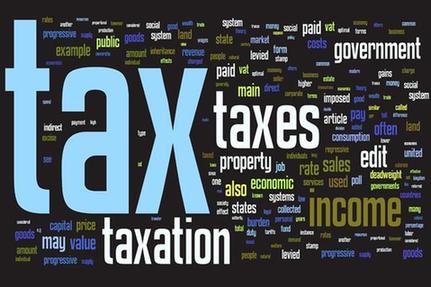Tax reforms under the principles of transparency, efficiency and equity
- By Hu Jiangyun
 0 Comment(s)
0 Comment(s) Print
Print E-mail China Today, March 6, 2014
E-mail China Today, March 6, 2014
China has been comprehensively deepening reforms since the convening last November of the Third Plenary Session of the 18th CPC Central Committee. Tax reforms affect the interests of each citizen and every enterprise, and are inextricable from economic development and social stability.
|
|
|
In the context of globalization, to deepen tax reforms China needs to stick to the principles of transparency, efficiency and equity. |
As one of the world's main emerging economies, China operates a fiscal system under the principle of high fiscal revenues and high fiscal expenditure, thus ensuring economic growth and social stability. From 2003 to 2012, China's fiscal revenue grew from RMB 2.17 trillion to RMB 11.73 trillion, with annual growth of more than 10 percent. The international financial crisis of 2009 saw growth of 11.72 percent, and was a period when China's fiscal expenditure rose from RMB 2.46 trillion to RMB 12.60 trillion. Growth had earlier hit 23.15 percent in 2007 and 25.74 percent in 2008, and growth of China's fiscal revenue and fiscal expenditure far exceeded that of its GDP and per capita GDP. From 2004 to 2012, the average growth of fiscal revenue surpassed that of GDP by 9.98 percentage points and that of per capita GDP by 10.58 percentage points. The average growth of fiscal expenditure, meanwhile, outstripped that of GDP by 9.15 percentage points and that of per capita GDP by 9.75 percentage points.
In the context of globalization, to deepen tax reforms China needs to stick to the principles of transparency, efficiency and equity. At present, the main problems are: non-transparency of fiscal expenditure, possible abuse of tax revenue, and non-public fiscal and taxation system policy-making processes which impede the participation of interested parties.
Transparency must be promoted in tax reforms to ensure that each taxpayer and every taxpaying enterprise is clear about the intended use of revenue. Interested parties should hence participate in and support these reforms.
Tax reform entails greater efficiency. A sound tax system guarantees rational tax rates, promotes economic growth and expands social wealth. China's tax collection and management system is less than perfect; there is a considerable discrepancy between the nominal and effective rates of taxation, and an efficient match between fiscal expenditure and tax revenue is yet to be achieved. According to the October 2013 edition of the IMF Fiscal Monitor, there was a downtrend from 2010 to 2013 in China's effective individual income tax rate and tax base, while the corporate income tax rate remained unchanged. There was meanwhile a downtrend in the effective VAT rate but an upturn in the tax base. The social security outlay tax base, meanwhile, increased, and there was an upturn in the property tax rate and tax base. Most developed economies, however, showed increases in both the tax rate and tax base of individual income tax. Deepening tax reform hence entails promoting efficiency, especially consistency between the nominal and effective rates of taxation.






